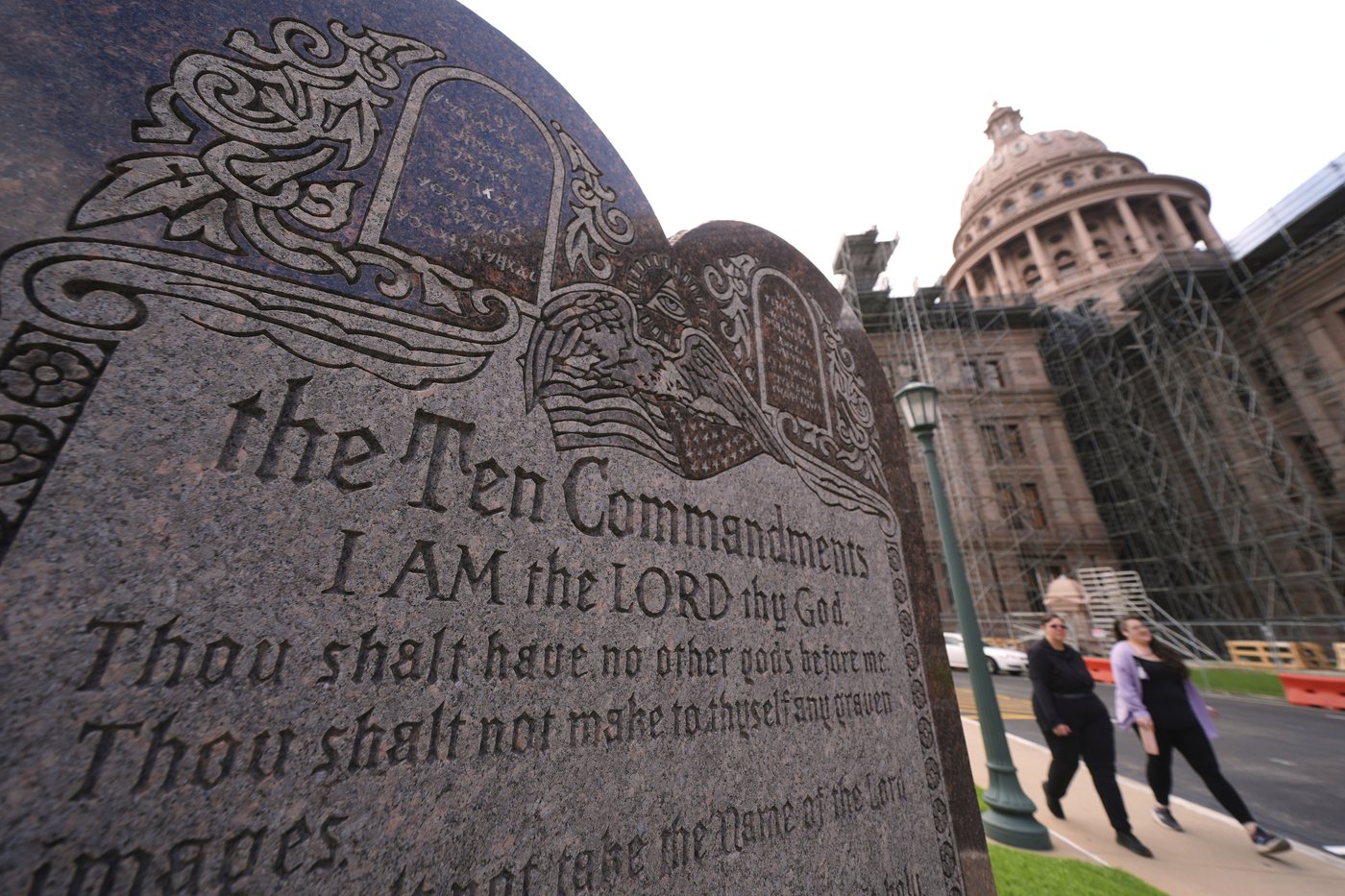Elevate your local knowledge
Sign up for the iNFOnews newsletter today!

Texas cannot require public schools in Houston, Austin and other select districts to display the Ten Commandments in every classroom, a judge said Wednesday in a temporary ruling against the state’s new requirement.
Texas is the third state where courts have blocked recent laws about putting the Ten Commandments in schools.
A group of families from the school districts sought a preliminary injunction against the law, which goes into effect on Sept. 1. They say the requirement violates the First Amendment’s protections for the separation of church and state and the right to free religious exercise.
Texas is the largest state to attempt such a requirement, and U.S. District Judge Fred Biery’s ruling from San Antonio is the latest in a widening legal fight that’s expected to eventually go before the U.S. Supreme Court.
“Even though the Ten Commandments would not be affirmatively taught, the captive audience of students likely would have questions, which teachers would feel compelled to answer. That is what they do,” Biery, who was appointed by President Bill Clinton, wrote in the ruling that begins by quoting the First Amendment and ends with “Amen.”
The ruling prohibits the 11 districts and their affiliates from posting the displays required under state law. The law is being challenged by a group of Christian, Jewish, Hindu, Unitarian Universalist, and nonreligious families, including clergy, who have children in the public schools.
A broader lawsuit that names three Dallas-area districts as well as the state education agency and commissioner is pending in federal court. And although Friday’s ruling marks a major win for civil liberties groups, the legal battle is likely far from over.
Texas Attorney General Ken Paxton said he planned to appeal the ruling, calling it “flawed.”
“The Ten Commandments are a cornerstone of our moral and legal heritage, and their presence in classrooms serves as a reminder of the values that guide responsible citizenship,” the Republican said in a statement, echoing sentiments from religious groups and conservatives who support the law.
Texas has a Ten Commandments monument on the Capitol grounds and won a 2005 Supreme Court case that upheld the monument.
The families who sued were represented by the American Civil Liberties Union, Americans United for the Separation of Church and State and the Freedom from Religion Foundation.
“The court affirmed what we have long said: Public schools are for educating, not evangelizing,” Tommy Buser-Clancy, senior staff attorney at the ACLU of Texas, said in a statement.
A federal appeals court has blocked a similar law in Louisiana, and a judge in Arkansas told four districts they cannot put up the posters, although other districts in the state said they’re not putting them up either. In Louisiana, the first state that mandated the Ten Commandments be displayed in classrooms, a panel of three appellate judges in June ruled that the law was unconstitutional.
Biery, the judge, cited both the Louisiana and Arkansas cases in his 55-page ruling. He also includes extensive historical references, quotes that range from the Founding Fathers to evangelist Billy Graham, and even a Rembrandt painting of Moses holding the stone tablets alongside an image of actor Charlton Heston in the film “The Ten Commandments.”
Having the displays in classrooms, Biery wrote, would likely pressure children of the parents challenging them into adopting the state’s preferred religion and suppressing their own religious beliefs. The judge said there are ways students could be taught the Ten Commandments’ history without it being placed in every classroom.
“For those who disagree with the Court’s decision and who would do so with threats, vulgarities and violence, Grace and Peace unto you,” he wrote. “May humankind of all faiths, beliefs and non-beliefs be reconciled one to another.”
___
This story has been updated to correct that the ruling covers specific school districts in Texas, not the entire state, and to correct the identities of the plaintiffs and defendants.
Want to share your thoughts, add context, or connect with others in your community?
You must be logged in to post a comment.